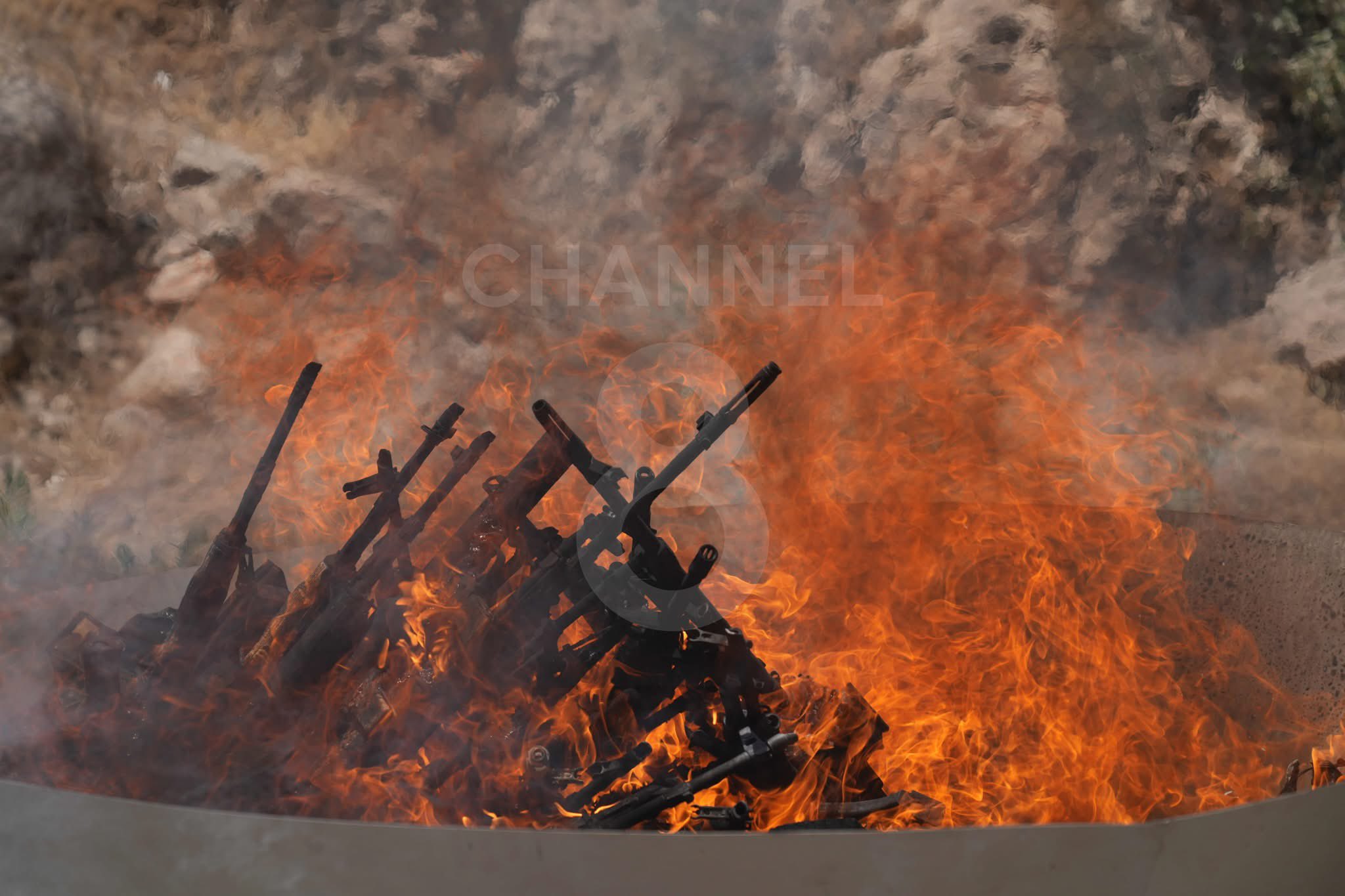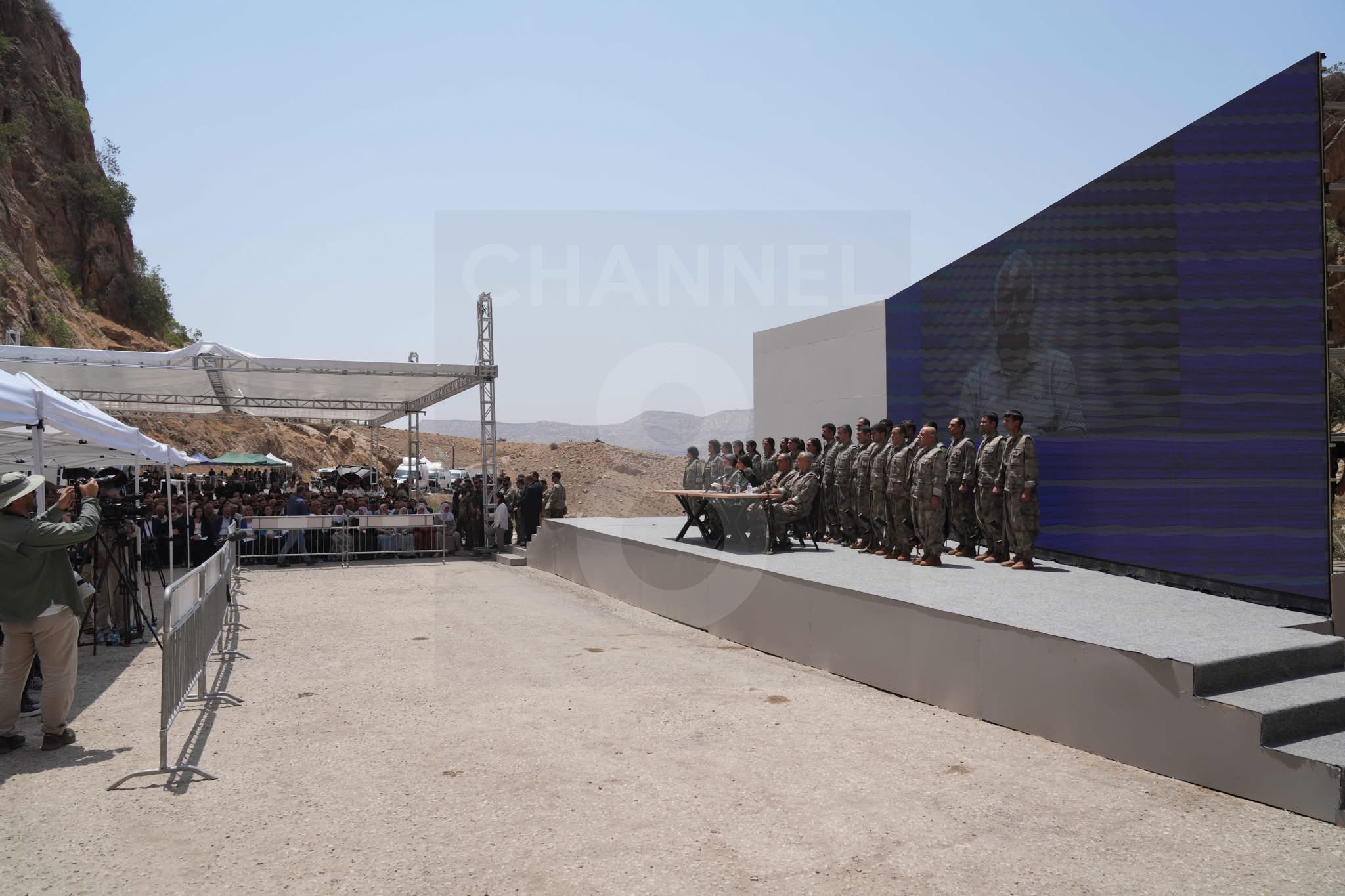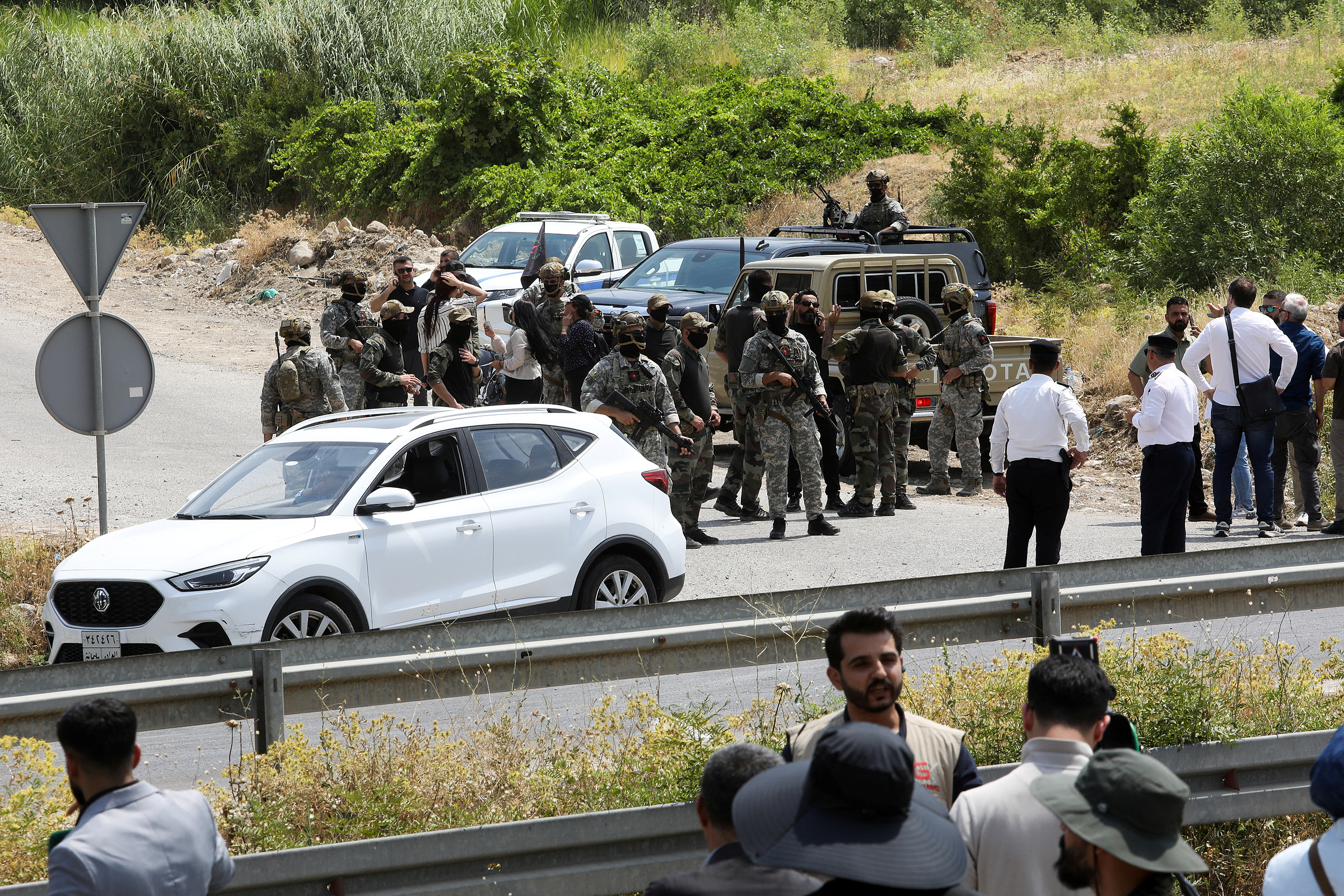Thirty members of the PKK, including four commanders, surrendered and burned their weapons near a cave in the Kurdistan autonomous region of northern Iraq on 11/7. The weapons included sniper rifles, RPGs, and AK47s.
 |
Weapons burned during the PKK disbandment ceremony near Sulaimaniyah, northern Iraq, on 11/7. Photo: Channel8 |
Weapons burned during the PKK disbandment ceremony near Sulaimaniyah, northern Iraq, on 11/7. Photo: Channel8
Helicopters circled overhead, and dozens of Kurdish security forces were present as the ceremony unfolded.
The PKK issued a statement at the ceremony, calling the destruction of weapons a "historic, democratic move" and expressing hope that the decision would "bring peace and freedom".
It is unclear when further weapons surrenders will occur.
Subsequent surrendered weapons will be destroyed in another ceremony attended by Turkish and Iraqi intelligence officials, Kurdistan Regional Government officials, and senior members of Turkey's pro-Kurdish Peoples' Democratic Party (HDP).
 |
PKK members during the disbandment ceremony on 11/7. Photo: Channel8 |
PKK members during the disbandment ceremony on 11/7. Photo: Channel8
At its 12th party congress in May, the PKK decided to dissolve its structure and end its armed struggle. The group declared that it had brought the Kurdish issue "to the point of being resolved through democratic politics" and had now "completed its historical mission".
This follows a February call for disarmament and disbandment by PKK founder Abdullah Ocalan, who has been imprisoned on an island off Istanbul since 1999.
In a rare video released on 9/7, Ocalan urged the Turkish parliament to form a committee to oversee disarmament and manage the peace process. Ankara has begun taking steps to establish such a committee.
Both the HDP and Ocalan maintain that legal guarantees and mechanisms are needed to facilitate the PKK's transition to democratic politics.
Omer Celik, spokesperson for Turkish President Recep Tayyip Erdogan's Justice and Development Party (AKP), stated that the disarmament process should not take more than a few months.
The PKK's disbandment will have significant political and security ramifications for the region, including neighboring Syria, where Kurdish forces are allied with the US. According to Erdogan, the disbandment also paves the way for reconstruction in southeastern Turkey.
 |
Kurdish security forces stand guard near the PKK disbandment ceremony. Photo: Reuters |
Kurdish security forces stand guard near the PKK disbandment ceremony. Photo: Reuters
The PKK, designated a terrorist group by Turkey, the US, and the European Union, launched its insurgency in 1984. Its initial aim was to create a homeland for the Kurds, who make up about 20% of Turkey's 85 million people.
The PKK has carried out numerous deadly attacks in Turkey over the decades. Turkey has repeatedly launched airstrikes against targets in Iraq and Syria in its campaign against the PKK. Over 40,000 people have died in the conflict since the PKK insurgency began.
Huyen Le (According to AFP, Reuters)












